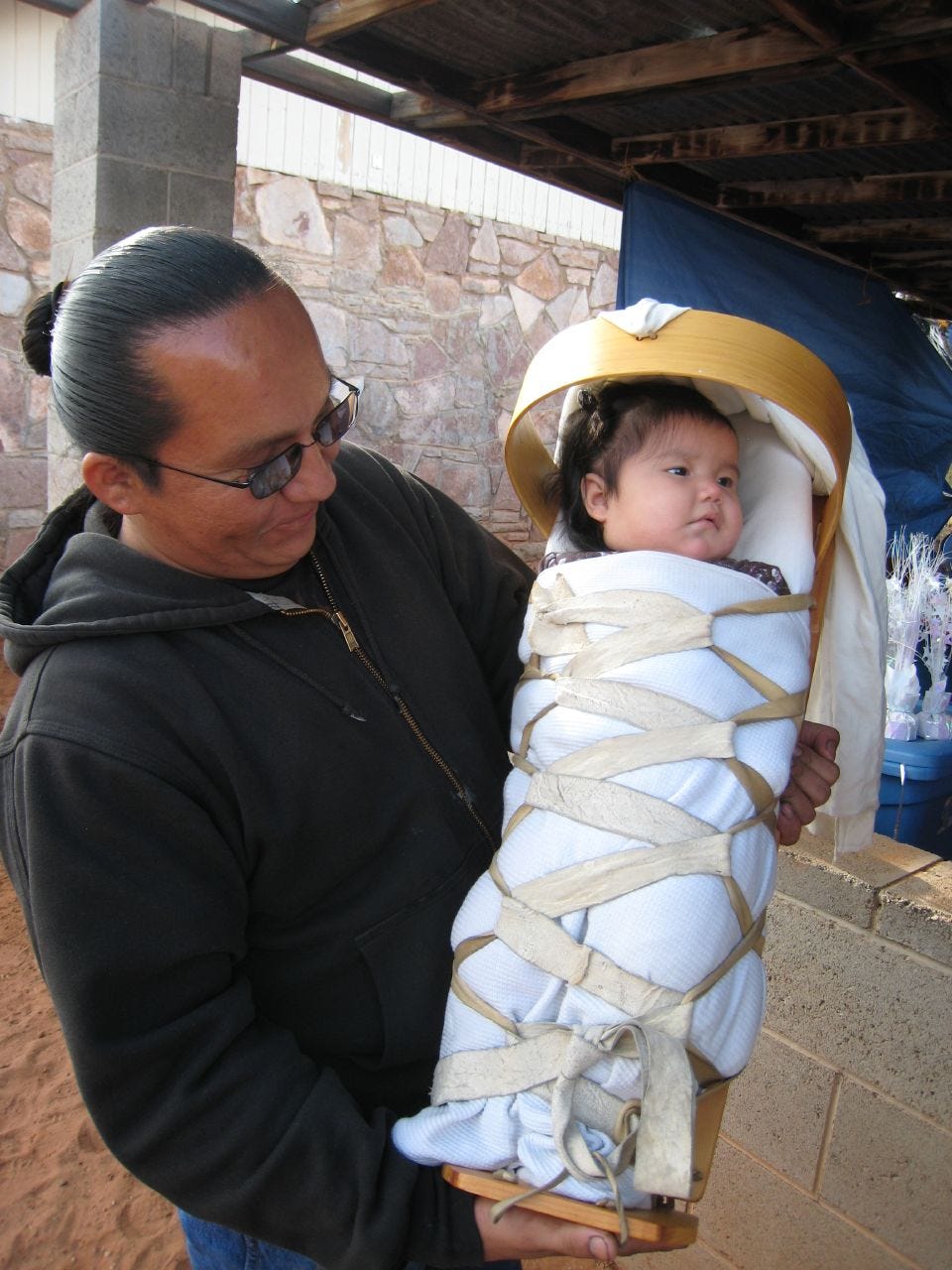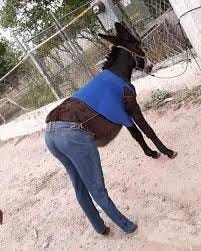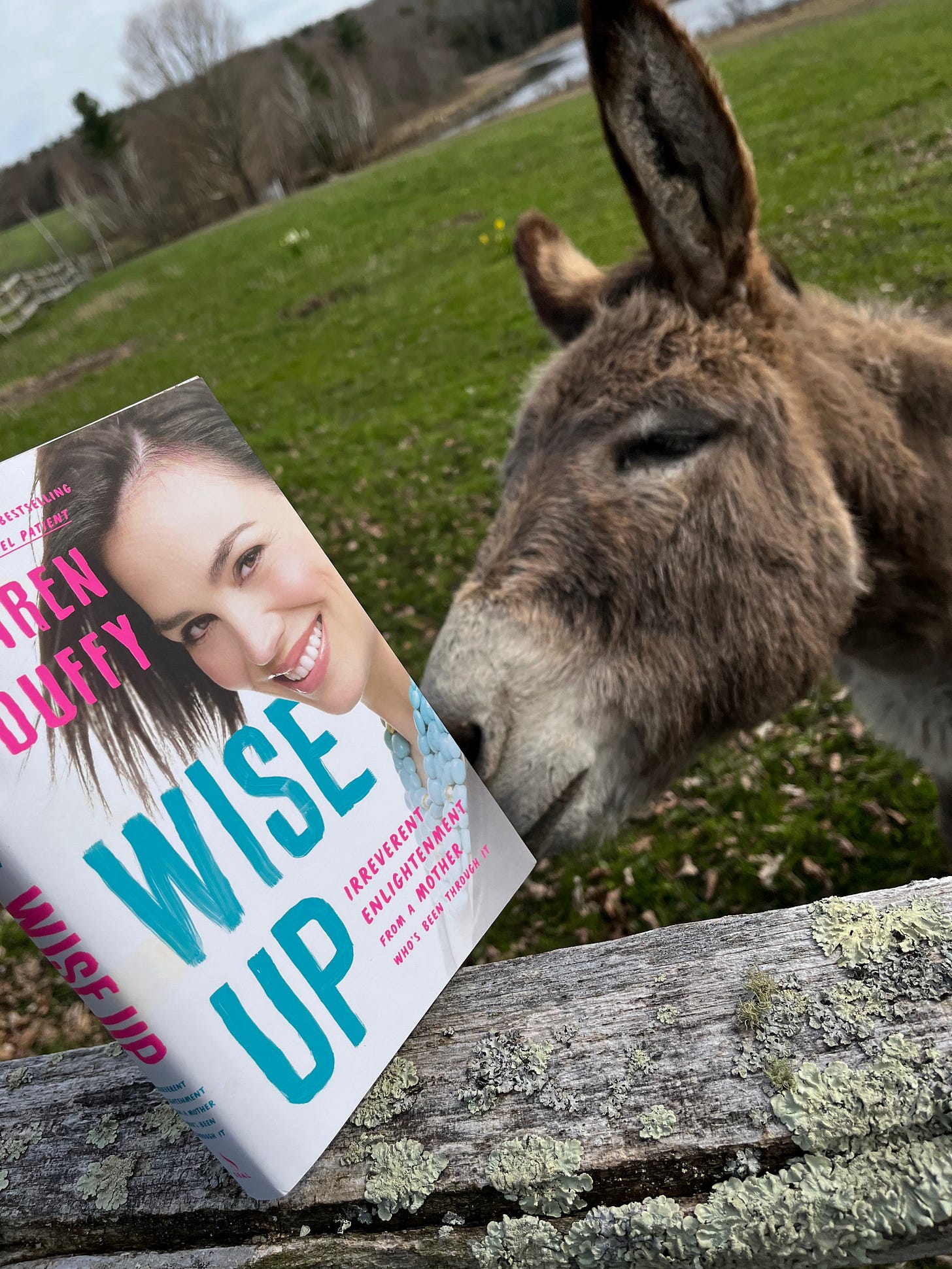"LAUGH WHEN YOU CAN. IT IS CHEAP MEDICINE"
--Lord Byron
When a baby is born to Navajo parents, the starter’s pistol goes off for an intense competition among friends of the family. They all want to be the one to provoke the infant’s first laugh. Baby’s first chuckle is a momentous occasion. The Navajo, or the Diné as they call themselves, believe that newborns are still living partially in the spiritual world. The first laugh is a sign that the baby is leaving the spirit world behind and fully committing to life in the physical world with his family.
Some Navajo/Diné believe that the baby will take on the personality of the person who provoked that initial giggle. I imagine that friends of the family hang around day and night, looking for an opportunity to tickle the baby or make funny faces or tell dad jokes. The person lucky enough to make junior crack up must throw a party to celebrate the occasion, called A’wee Chi’deedloh. In addition to a meal, the jokester provides gifts of salt and sweets, to teach the baby to be generous.

I intend to honor this ancient Diné tradition by attempting to be the first person to make my nephew’s impending little one burst out in baby’s first belly laugh. I imagine his parents might be confused by the gift of a cylindrical container of Morton’s though.
There is a misconception that Stoic philosophers lacked a sense of humor, but laughter was very much a part of their world. Chrysippus, the third leader of the Stoic school in Athens, enjoyed a jape as much as the next fellow. In fact he died laughing! Upon seeing a donkey eating figs, he said “Now give the donkey some wine to wash them down!” and was so taken by his witticism that he promptly expired. I guess you had to be there. Then again I guess Chrysippus wouldn’t find the oeuvre of Adam Sandler as funny as I do.
The Stoics thought a lot about heavy topics like pain and suffering and overcoming obstacles, but they also thought a sense of humor was paramount. Seneca wrote that “It is more fitting for a man to laugh at life than lament it.”
Living in accordance with nature is a key Stoic tenet. That means living in accordance with your qualities as well. If you’re the class clown, be that, if you’re not, laugh at him, or at yourself. Epictetus said, “He who laughs at himself never runs out of things to laugh at.” Developing a sense of humor about your own flaws and mistakes can be a never-ending source of joy and resilience.
In conclusion, a priest, a nun, and a rabbi walk into a bar. The bartender says “What is this, a joke?”





Love it! I suppose I inherited my personality from my dad.